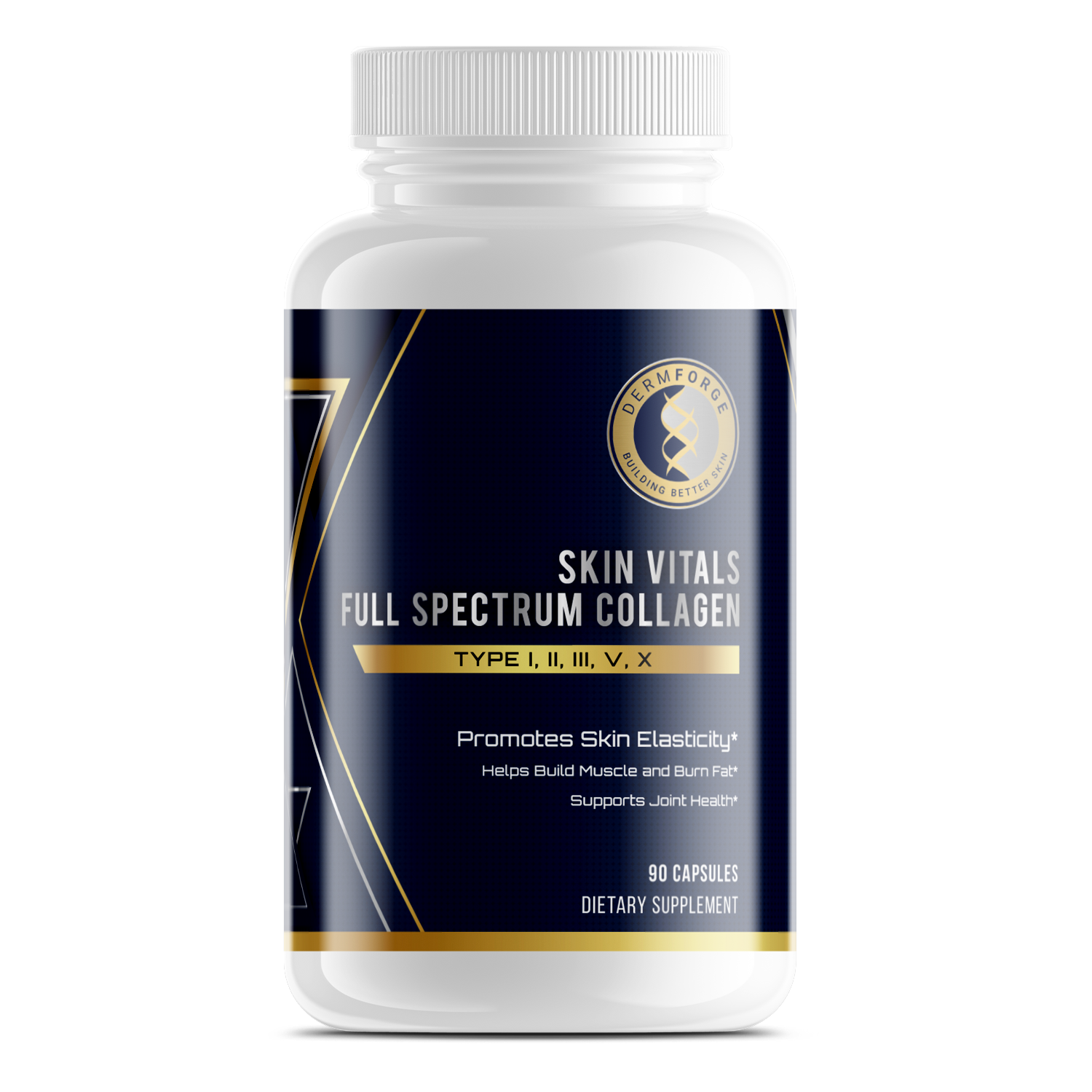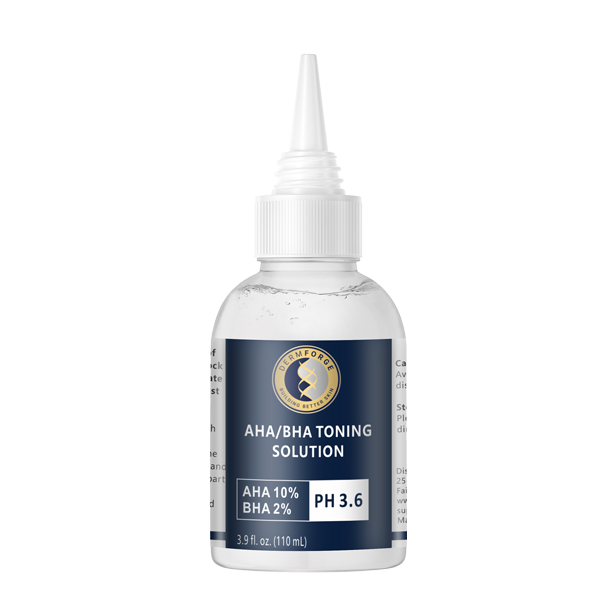Healthy, youthful-looking skin begins beneath the surface. Supporting skin structure involves more than moisturizing or applying topical treatments. It starts with giving your body the nutrients it needs to maintain balance, elasticity, and repair. Vitamins K2 and D3 play a key role in this process by helping regulate calcium and supporting collagen production. Therefore, when these vitamins work together, they help your skin stay firm, smooth, and strong.
Additionally, your skin constantly renews itself, replacing old cells with new ones. This ongoing process depends on proper nutrition and mineral balance. When your body lacks essential nutrients, skin can appear dull or lose its elasticity. However, when your diet and supplement routine provide consistent support, your skin performs better at every level. These internal improvements gradually show through a healthier, more even complexion.
Furthermore, maintaining skin health means approaching it as a whole-body effort. Daily habits like hydration, balanced eating, and regular sleep all influence how your skin looks and feels. Vitamins K2 and D3 strengthen that foundation by helping regulate calcium flow and support protein function. When these nutrients work in harmony, they promote skin that feels firmer and appears more youthful. Therefore, focusing on internal balance can make a noticeable difference in your skin’s tone and texture over time.
Why skin structure matters: collagen, elastin and calcium balance
Your skin’s structure determines how firm, smooth, and elastic it feels each day. Collagen and elastin are two key proteins that keep your skin strong and flexible. Collagen provides support, while elastin allows your skin to stretch and return to its natural shape. As these proteins decline with age or stress, skin can appear thinner and less resilient. Therefore, keeping them healthy helps maintain a youthful and balanced appearance.
Additionally, calcium plays a significant role in skin structure and renewal. It regulates cell turnover and supports the barrier that keeps moisture within your skin. When calcium levels are balanced, skin cells communicate better and renew more efficiently. However, when calcium becomes improperly distributed, it can lead to dryness or a rough texture. That’s why maintaining proper calcium regulation contributes to healthy skin function and appearance.
Furthermore, nutrients and lifestyle choices directly influence your skin’s ability to rebuild and repair structural proteins. Supporting skin structure means focusing on habits and ingredients that maintain collagen, elastin, and mineral balance. Vitamins, hydration, and consistent care all help your body sustain the building blocks of firm, smooth skin. When you nourish your skin from within, you strengthen its ability to stay supple and resilient over time.
How Vitamin D3 supports skin health
Vitamin D3 does more for your body than support bone health. It also plays a direct role in how your skin looks and feels. This nutrient helps regulate the growth and repair of skin cells, which keeps your complexion balanced and healthy. When your body gets enough Vitamin D3, it supports the skin’s ability to renew itself efficiently. Therefore, consistent intake helps maintain smoother texture and more even tone.
Additionally, Vitamin D3 contributes to your skin’s natural immune defense. It helps your skin respond to daily stressors such as dryness, pollution, and irritation. A healthy level of Vitamin D3 allows your skin to recover more effectively from these challenges. However, low levels may slow down renewal and make your skin appear dull or tired. Over time, deficiency can affect elasticity and moisture balance, which can lead to uneven or rough skin.
Furthermore, Vitamin D3 plays an indirect part in supporting skin structure. It helps regulate calcium metabolism, which influences how your skin cells develop and function. Balanced calcium levels keep your skin barrier strong, allowing it to retain hydration and remain resilient. Therefore, Vitamin D3 acts as a quiet but steady foundation for maintaining healthy, responsive skin. When you support your body with enough of this nutrient, you give your skin what it needs to stay firm, clear, and refreshed.
The under-appreciated role of Vitamin K2 for skin elasticity and calcium control
Vitamin K2 plays a quiet but powerful role in how your skin maintains its elasticity and smooth texture. It helps manage calcium so it supports your body where it’s needed most. Instead of allowing calcium to settle in soft tissues like your skin, Vitamin K2 directs it toward bones and other structural areas. This process helps reduce unwanted stiffness in the skin that can make it appear less supple. Therefore, maintaining healthy K2 levels supports your skin’s natural flexibility and resilience.
Additionally, Vitamin K2 supports important proteins that depend on calcium to function properly. These proteins help keep tissues firm and balanced. Without enough K2, calcium can accumulate in the wrong places, leading to hardened or uneven skin texture. Over time, this can affect your skin’s ability to stay smooth and youthful. By keeping calcium in check, K2 promotes balance within your skin’s deeper layers.
Furthermore, this nutrient contributes to supporting skin structure through its connection to collagen integrity. Collagen fibers need flexibility to maintain healthy tone, and calcium balance plays a part in that. Vitamin K2 works in the background to support that balance, helping your skin stay soft and well-structured. When you include K2 in your routine, you’re helping your body guide minerals where they belong. As a result, your skin can retain its natural elasticity and youthful look longer.
Synergy of K2 + D3: why the combo matters for your skin
Vitamin D3 and Vitamin K2 work together in a way that benefits both your overall health and the condition of your skin. Vitamin D3 helps your body absorb calcium efficiently, while Vitamin K2 directs that calcium to the right places. When these two nutrients function together, they create balance, supporting processes that keep your skin strong and resilient. Without this balance, calcium may accumulate in soft tissues where it doesn’t belong, which can affect skin texture and elasticity.
Additionally, the combination of D3 and K2 helps support collagen and elastin indirectly through mineral regulation. Collagen provides firmness, and elastin maintains flexibility, both of which are important for smooth, youthful-looking skin. Therefore, balanced calcium levels, guided by this vitamin pair, help preserve those structural proteins. When you take D3 alone, calcium absorption increases, but it needs K2 to make sure that calcium is properly used. This teamwork helps your skin function optimally from within.
Furthermore, supporting skin structure depends on more than surface care. Nutrients like D3 and K2 create a foundation that strengthens the deeper layers of your skin. Together, they help maintain balance between renewal and repair, promoting a healthy barrier and consistent tone. When both vitamins are part of your daily routine, you give your skin a more complete form of support. This simple pairing works quietly yet effectively to keep your skin firm, smooth, and naturally radiant.
How to take the supplement for skin-focused results: timing, dosage and lifestyle fit
For best skin benefits, consistency matters when taking your Vitamin K2 and D3 supplement. Both vitamins are fat-soluble, which means your body absorbs them better with food that contains healthy fats. Therefore, taking your supplement with a meal that includes avocado, olive oil, or eggs helps improve absorption. Many people prefer taking it in the morning with breakfast, as it sets the tone for a healthy daily routine. However, the exact time is less important than taking it regularly each day.
Additionally, pairing your supplement with supportive lifestyle habits helps your skin perform at its best. Vitamin D3 works with natural sunlight exposure, so moderate sun time can complement your intake. Balanced nutrition, hydration, and quality sleep also help your body make the most of these nutrients. When you combine these daily habits, you strengthen your skin’s renewal cycle and maintain an even, refreshed appearance.
Furthermore, supporting skin structure involves more than topical care. These vitamins help regulate calcium and promote proper cell function from within. Over time, this balance supports smoother texture, firmer tone, and better elasticity. Therefore, taking your supplement consistently and aligning it with healthy habits can make a meaningful difference in how your skin looks and feels. When you approach your skin routine from the inside out, you create lasting support for skin health and resilience.
What to expect and what to watch: results, safety and when to consult a professional
When taking a Vitamin K2 and D3 supplement for skin health, it’s important to set realistic expectations. Supporting your skin from within takes time, as your body gradually absorbs and uses these nutrients. Most people may notice small improvements in texture and tone after several weeks of consistent use. However, meaningful changes often take a few months, since your skin renews itself slowly. Therefore, patience and consistency make a real difference when supporting skin structure.
Additionally, your results depend on factors such as diet, hydration, sun exposure, and overall wellness. Balanced nutrition and proper sleep help your body use these vitamins more efficiently. However, no supplement replaces a healthy lifestyle or daily skincare routine. Maintaining those habits helps maximize your results and sustain improvements over time.
Furthermore, you should always take supplements responsibly and within recommended limits. Vitamin D3 is stored in the body, so taking too much can cause problems over time. Vitamin K2 is generally well tolerated, but it may interact with certain medications, especially blood thinners. Therefore, it’s best to consult your healthcare provider before starting if you take prescription medicine or have specific health concerns. By using these nutrients carefully and consistently, you support both your overall health and your skin’s long-term resilience.
Conclusion
Your skin reflects how well your body functions from the inside. When you care for it with the right nutrients, you help it stay firm, balanced, and resilient. Vitamins K2 and D3 support the deeper layers of your skin by managing calcium and encouraging renewal. Therefore, when you combine them, you create a foundation for long-term skin health that goes beyond surface treatments. These nutrients work quietly but consistently to keep your skin supple and strong.
Additionally, supporting skin structure requires daily attention to both nutrition and lifestyle. Consistency in taking your supplement, staying hydrated, and maintaining a balanced diet all contribute to visible improvements. Sleep and moderate sun exposure also influence how your skin regenerates and protects itself. Over time, these small habits compound, helping your complexion stay smooth and refreshed.
Furthermore, supplements like Vitamin K2 and D3 fit naturally into a skin-focused routine. They complement your topical care by nourishing your skin from within. When your body has the nutrients it needs to guide calcium and support protein function, your skin maintains its firmness and elasticity. Therefore, by choosing habits that align with your body’s natural processes, you give your skin the best chance to thrive. With consistency and care, your skin can look and feel healthier each day.






